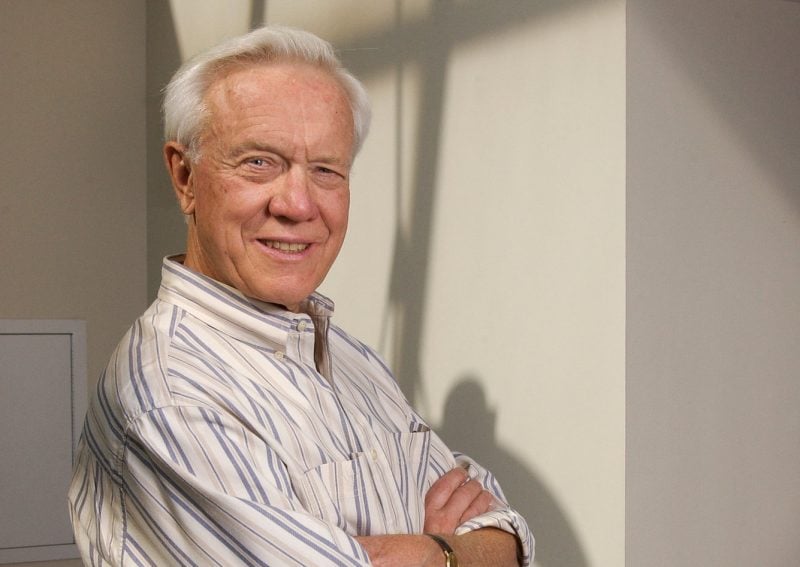Nils Nilsson Ph.D. ’58, Stanford computer science professor emeritus and pioneering artificial intelligence and robotics researcher, died at the age of 86 on April 2 at his home in Medford, Oregon.
Nilsson was a trailblazer in the fields of artificial intelligence and robotics research. He helped develop the first general-purpose automated robot and design the algorithms that dictated its path. Nilsson authored several seminal books and scientific papers in the realms of artificial intelligence and robotics, sat on the editorial boards of a number of computer science journals, served as president of the Association for the Advancement of Artificial Intelligence and was honored with a number of industry awards.
He graduated from Stanford with a Ph.D. in electrical engineering and subsequently served three years in the U.S. Air Force. After his discharge, he joined the Stanford Research Institute (SRI), where he conducted research on neural networks and robotic problem-solving for the next 23 years. He would become the leader of the Institute from 1980 to 1984.
Nilsson joined the Stanford faculty in 1985 as chair of the computer science department, a role he held until 1990. At Stanford, he helped move the department of computer science from the School of Humanities and Sciences to the School of Engineering.
At SRI, Nilsson researched methods to improve neural network performance to rival human qualities in speech processing and vision.
He also embarked on a project to automate the navigation of a robot in an obstruction-filled environment. He collaborated with fellow researchers to design the A* algorithm, allowing the robot to determine the shortest path between two points in a room littered with obstacles. He also helped design Stanford Research Institute Problem Solver (STRIPS), a program that gave the robot abstract reasoning abilities.
Nilsson’s subsequent research project at SRI was known as the “Computer-based Consultant” for natural language understanding, a precursor of Siri. The computational concepts Nilsson innovated are still prevalent in the field today.
While Nilsson spent the majority of his years in close proximity to Silicon Valley, he had no interest in start-up culture characteristic of the area, preferring academia over industry.
“He was a researcher and academically inclined,” Peter Hart, an SRI researcher who worked with Nilsson, told the New York Times.
Nilsson is survived by his wife, Grace Abbott; two children from his first marriage, Lars and Kristin; four stepsons and 12 grandchildren.
“Nils was a kind, thoughtful, inspiring person who helped shape the department in a formative era,” John Mitchell, a fellow computer science professor and current department chair, told Stanford News. “He was unusually supportive of young faculty and always put our collective success ahead of any personal recognition or reward. All of us who knew him will sorely miss him.”
Contact Alex Tsai at aotsai ‘at’ stanford.edu.
